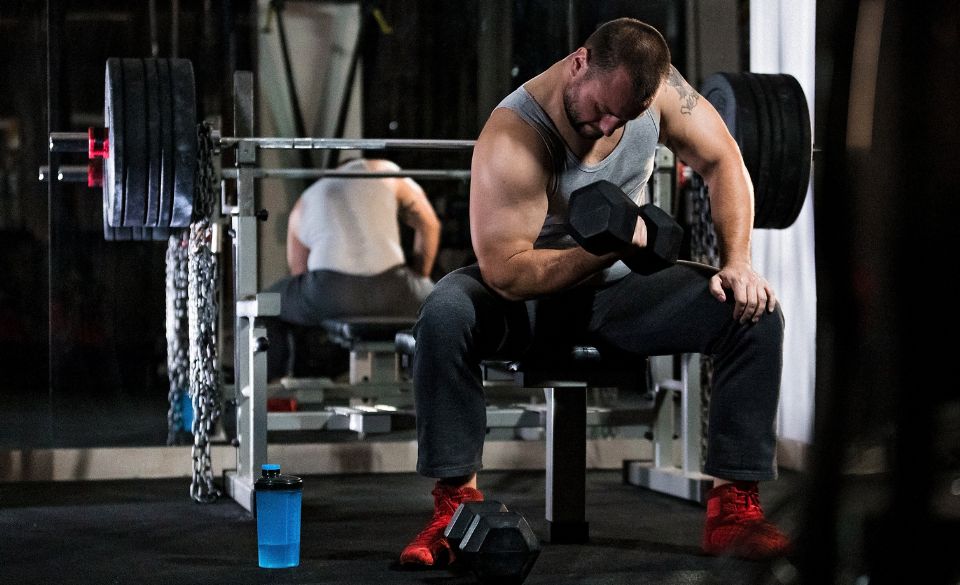
Lifting Weights After a Cortisone Shot: What You Need to Know
Page Contents
Cortisone shots, also known as corticosteroid injections, are a common treatment for various types of pain, inflammation, and joint problems. For athletes and fitness enthusiasts, the idea of taking time off from training to receive a cortisone shot can be frustrating. However, it’s important to understand the potential effects of cortisone on the body and the precautions to take when lifting weights after receiving a cortisone shot.
What is a Cortisone Shot?
A cortisone shot, also known as a corticosteroid injection, is a type of medical treatment that involves the injection of a synthetic version of the hormone cortisone into a specific area of the body. Cortisone is a natural hormone produced by the adrenal glands, which are located above the kidneys.
Cortisone shots are commonly used to treat a variety of inflammatory conditions, such as arthritis, tendonitis, and bursitis. They can also be used to treat other types of pain, such as back pain and nerve pain.
The cortisone in the injection works to reduce inflammation in the affected area, which can relieve pain and discomfort. The injection is usually administered by a healthcare provider, and the dosage and frequency of injections may vary depending on the specific condition being treated.
Cortisone shots can be an effective treatment option for many types of pain and inflammation, but they do come with some potential side effects. These can include temporary pain or swelling at the injection site, a temporary increase in blood sugar levels, and rarely, infections or other complications.
The Potential Effects of Cortisone on Weightlifting
Cortisone is a steroid hormone that is naturally produced by the adrenal gland in response to stress. It is also used therapeutically as a medication to reduce inflammation and swelling in various conditions, including arthritis, asthma, and skin disorders. However, the use of cortisone in weightlifting is a controversial topic due to its potential effects on athletic performance.
One of the primary concerns with cortisone use in weightlifting is its impact on muscle mass. Cortisone has been shown to decrease protein synthesis and increase protein breakdown, which can lead to muscle loss. A study published in the Journal of Applied Physiology found that cortisone injections reduced muscle protein synthesis by 22% in healthy subjects. This can be particularly detrimental for weightlifters who rely on muscle mass for strength and power.
Another potential effect of cortisone on weightlifting is its impact on bone density. Cortisone has been shown to reduce bone density, which can increase the risk of fractures and injuries. A study published in the Journal of Clinical Endocrinology and Metabolism found that cortisone injections led to a significant decrease in bone density in postmenopausal women. This can be a concern for weightlifters who engage in heavy lifting and place significant stress on their bones.
Furthermore, cortisone use can also lead to fluid retention and weight gain. This can be particularly problematic for weightlifters who compete in weight classes, as even a small increase in body weight can lead to disqualification. A study published in the Journal of Clinical Endocrinology and Metabolism found that cortisone injections led to an average weight gain of 2.5 kg in healthy subjects.
In conclusion, the potential effects of cortisone on weightlifting can be detrimental to athletic performance. Cortisone can lead to muscle loss, decreased bone density, and weight gain, which can impact an athlete’s strength, power, and ability to compete in their weight class. Therefore, it is important for weightlifters to carefully consider the potential risks and benefits of cortisone use before incorporating it into their training regimen.
Precautions to Take When Lifting Weights After a Cortisone Shot
Cortisone shots are often used to treat conditions that cause pain and inflammation in the joints, muscles, and soft tissues. While these shots can be effective in reducing pain and inflammation, it is important to take precautions when lifting weights after a cortisone shot to avoid further injury or complications.
1. Consult with your doctor: Before resuming weightlifting after a cortisone shot, it is important to consult with your doctor or healthcare provider. They can advise you on when it is safe to resume weightlifting and what precautions you should take based on your individual situation and the reason for your cortisone shot.
2. Start slowly: When you first resume weightlifting after a cortisone shot, it is important to start slowly and gradually increase the intensity and frequency of your workouts. This will allow your body to adjust to the increased stress and reduce the risk of further injury.
3. Use proper form: When lifting weights, it is important to use proper form to avoid putting unnecessary stress on your joints and muscles. This is especially important after a cortisone shot when your joints and muscles may still be recovering from inflammation or injury.
4. Avoid overexertion: It is important to avoid overexertion when lifting weights after a cortisone shot. This can include lifting too much weight, performing too many repetitions, or exercising for too long. Overexertion can increase the risk of further injury or inflammation.
5. Listen to your body: Pay attention to your body’s signals when lifting weights after a cortisone shot. If you experience pain, discomfort, or other symptoms, stop exercising immediately and consult with your doctor or healthcare provider.
6. Ice and rest: After a weightlifting session, it is important to rest and apply ice to any areas that may be sore or inflamed. This can help reduce inflammation and speed up the healing process.
Taking precautions when lifting weights after a cortisone shot is essential to avoid further injury or complications. By consulting with your doctor, starting slowly, using proper form, avoiding overexertion, listening to your body, and resting and icing after workouts, you can safely resume weightlifting and continue to improve your strength and fitness.
Lifting Weights After a Cortisone Shot
Lifting weights after a cortisone shot can be a safe and effective way to maintain or improve your strength and fitness. However, it is important to take certain precautions to avoid further injury or complications.
1. Wait for the cortisone shot to take effect: Cortisone shots typically take a few days to start working, so it is important to wait for the medication to take effect before resuming weightlifting. This can help reduce the risk of further injury or inflammation.
2. Start slowly and gradually increase the intensity: When you first resume weightlifting after a cortisone shot, it is important to start slowly and gradually increase the intensity and frequency of your workouts. This can help your body adjust to the increased stress and reduce the risk of further injury.
3. Use proper form: Using proper form when lifting weights is essential to avoid putting unnecessary stress on your joints and muscles. This is especially important after a cortisone shot when your joints and muscles may still be recovering from inflammation or injury.
4. Listen to your body: Pay attention to your body’s signals when lifting weights after a cortisone shot. If you experience pain, discomfort, or other symptoms, stop exercising immediately and consult with your doctor or healthcare provider.
5. Allow time for rest and recovery: After a weightlifting session, it is important to rest and allow your body time to recover. This can help reduce inflammation and speed up the healing process.
Final Words
In conclusion, lifting weights after a cortisone shot can be a safe and effective way to maintain or improve your strength and fitness. However, it is important to take certain precautions to avoid further injury or complications. By waiting for the cortisone shot to take effect, starting slowly and gradually increasing the intensity, using proper form, avoiding overexertion, listening to your body, and allowing time for rest and recovery, you can safely resume weightlifting and continue to achieve your fitness goals.
It is also important to consult with your doctor or healthcare provider before resuming weightlifting after a cortisone shot. They can provide you with individualized advice and recommendations based on your specific situation and the reason for your cortisone shot.
Overall, lifting weights after a cortisone shot can be a positive and rewarding experience. By taking the necessary precautions and listening to your body, you can safely and effectively maintain or improve your strength and fitness levels, leading to a healthier and happier lifestyle.



